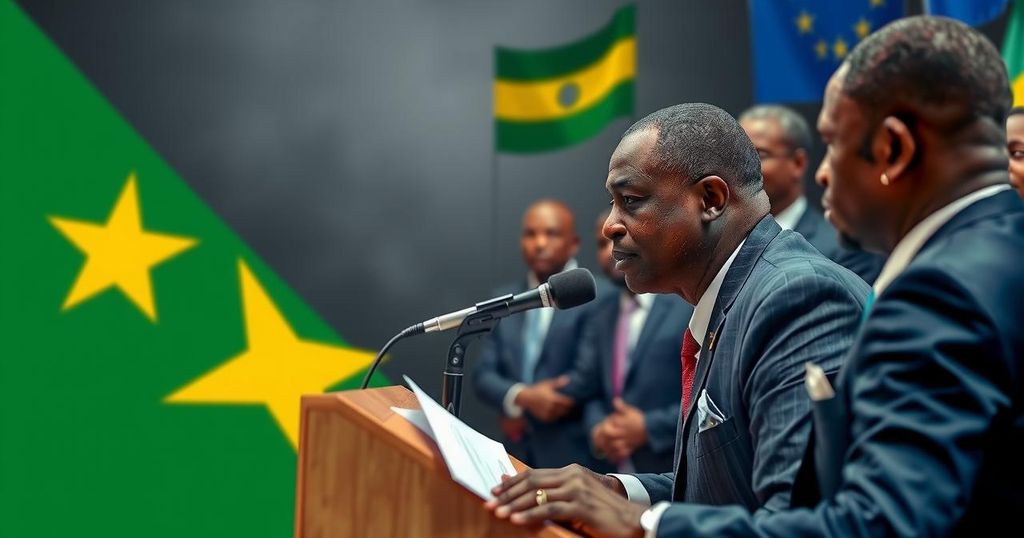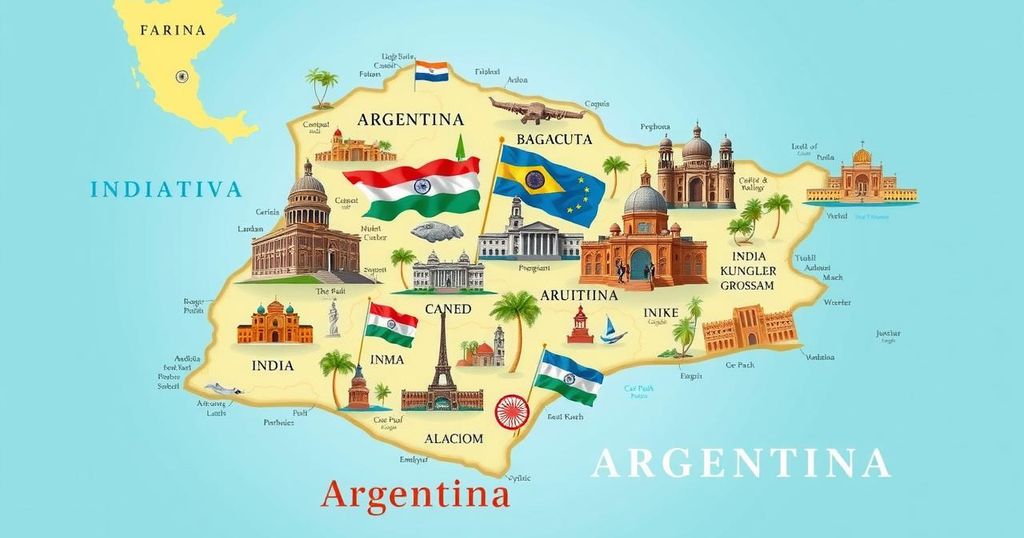Gabon Votes on New Constitution: A Potential Turning Point Post-Dynasty
Gabon is conducting a referendum on a proposed constitution that the ruling junta claims will signify a new beginning after 55 years of dynastic rule. With approximately 860,000 registered voters, the voting process has been marked by official propaganda, concerns over transparency, and critical views from opponents. The proposed constitution seeks to limit presidential terms and prevent dynastic succession, aiming to define a new political landscape in Gabon.
In Gabon, voters participated in a referendum on a proposed new constitution, an initiative hailed by the ruling junta as a significant shift following 55 years of dynastic leadership. Around 860,000 eligible voters were urged through various media to actively participate, casting either a green ballot for ‘yes’ or a red one for ‘no.’ The vote, which began on time at numerous polling stations across the country, saw delays in some areas, raising questions about voter turnout. Amid an extended nighttime curfew imposed by the authorities to maintain security during the polling process, transitional President Brice Oligui Nguema emphasized the importance of the referendum as a positive step towards political reform.
The proposed constitution suggests a framework for a presidency limited to two seven-year terms, the elimination of a prime minister role, and a prohibition on dynastic succession, which would prevent the return of the former president’s family to power. The initiative is viewed by supporters as a progressive transition, while detractors express concern that it could establish a framework for dictatorship.
As voters stood in lines to cast their ballots, responses varied; some expressed confidence in the junta and the constitutional proposals, while critics labeled it a self-serving maneuver by the ruling elite. Despite the lack of international observers during this election, many Gabonese hope for a transparent and fair process that allows for genuine representation. Survey data indicated significant support for the direction of the country under the junta’s leadership, yet unemployment and basic services remained pressing concerns for the populace.
Gabon has experienced prolonged authoritarian rule characterized by the Bongo family dynasty, which has governed the nation for over half a century. The recent coup in August 2023 marked the beginning of a transitional government led by Brice Oligui Nguema. This referendum represents an effort to establish a new governing framework intended to address issues such as corruption and transparency, which have plagued the Bongo presidency. The proposed constitutional changes aim to redefine governance and potentially reshape the political landscape of Gabon, which has been marked by allegations of electoral fraud and systemic mismanagement.
In summary, the referendum on the new constitution in Gabon is a pivotal moment for the nation, signaling a possible end to decades of dynastic rule. The ruling junta’s portrayal of the constitutional changes as a democratic advance is met with skepticism from critics who fear the consolidation of authoritarian power. Voter participation and the transparency of the electoral process will be critical indicators of whether this initiative can genuinely transform Gabon’s political climate for the better.
Original Source: www.arabnews.com




Post Comment